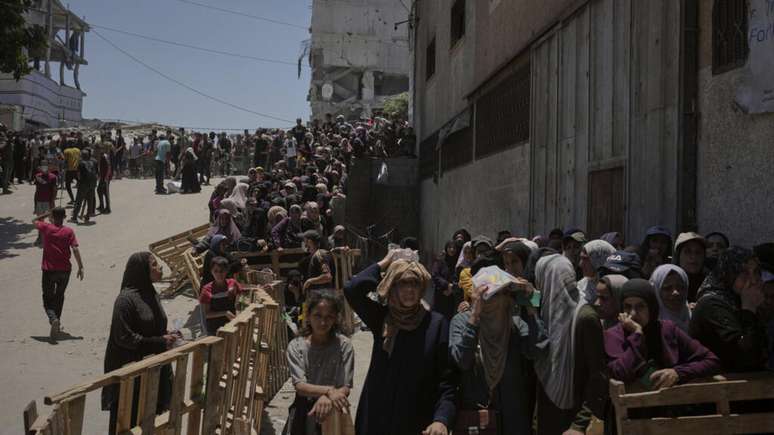Collaboration between the club and the São Paulo Public Security Secretariat identifies people with pending legal issues and leads to the arrest of an international drug trafficker
A program from Secretariat of Public Security of São Paulo (SSP)in collaboration with Palmeiras led to the arrest of 28 people in four matches played in Allianz Park. OR facial recognition system, implemented this year in the Palmeiras bullring, helped the police make the arrests. One of those arrested was wanted for international drug trafficking. He fled in March 2020, after the crash of a plane with more than 400 kg of cocaine, and was arrested before entering the stadium.
A further 42 people violating the legal measures were identified, prevented from entering Allianz Parque and reported to the custody court. The initiative, called Muralha Paulista, also identified 253 missing people.
According to the SSP, in total, 146,793 tickets were verified with the new tool of the Secretariat of Public Security in collaboration with Palmeiras. Facial biometrics, implemented at Allianz Parque earlier this year, helps identify people with pending legal matters.
The program works through systems integration and allows you to analyze ticket sales in real time using intelligence algorithms that respect a pre-established risk management plan for each type of event.
The action conducted by the SSP in collaboration with Palmeiras served arrest warrants from several states, linked to the crimes of robbery, embezzlement, theft and drug trafficking.
The data used in this verification are national. A person wanted for the crime of pedophilia in Alagoas was arrested while trying to access the Palmeiras stadium to attend a match.
“This is an action by the secret police services with the aim of making the event location safer, preventing access to people who could compromise public order. The events are now based on cutting-edge technologies and on the partnership between the private and public sectors, without any implementation costs for the State”, stated the Secretary of Public Security of São Paulo, Guilherme Derrite.
The facial biometrics system, implemented in January this year by Palmeiras to curb the currency exchange, aids the work of the SSP. The technology ensures that the CPF holder responsible for purchasing the ticket is the same person entering the stadium, which is not necessarily the case when using physical or barcode tickets.
Leila Pereira, president of Palmeiras, decided to invest in technology counter scalping after numerous reports of irregularities in ticket sales. The same system also exists at the turnstiles of social clubs. Facial biometrics gradually started to work in January and currently works in all sectors of the Palmeiras arena. The club considers the experience satisfactoryeven with some failures, crashes and other complications.
“We have invested in the implementation of facial recognition to protect our greatest asset, the Palmeiras fans. We want our home to be increasingly safe for all the families who visit it and we are happy to contribute to the public safety authorities” , said the president of Palmeiras.
In the case of football matches, the police analyzes the purchase of tickets from touts, the use of false or third-party documents, pending arrest warrants, failure to comply with court orders or sanctions imposed by the Fan Statute and missing people. When someone falls into this filter, access to the event location is blocked and the police intervene.
Source: Terra
Rose James is a Gossipify movie and series reviewer known for her in-depth analysis and unique perspective on the latest releases. With a background in film studies, she provides engaging and informative reviews, and keeps readers up to date with industry trends and emerging talents.






